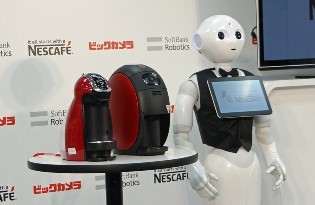China's leading Internet giants Baidu, Tencent and Alibaba (BAT) have accelerated the deployment of smart hardware devices in an effort to build a strong presence in the huge Internet of Things (IoT) market, the China Business News reported.
IoT allows more direct integration between the physical world and computer-based systems through hardware devices that can be detected and controlled remotely via existing network infrastructure, the report said.
In the IoT system, the roles of smartphones as the centerpiece of the smart network are diminished and more devices become "smart" in and of themselves.
Chen Lijuan, general manager of Alibaba's Smart Living Unit, said that the smart connection among different hardware devices is a very important direction for development, and China is likely to have a huge potential in this area.
Alibaba Smart Living and Philips jointly launched on Aug. 25 a smart speaker that can be linked via WiFi to smart home products on the Alibaba smart platform. The speaker can also perform music search and change its display based on voice commands.
In partnership with SoftBank of Japan and Foxconn Technology, Alibaba is also introducing humanoid "Pepper," to be linked with Alibaba's smart home products by serving as their commander.
Du Haitao, a senior product expert at Alibaba Smart Living, said that the trend in smart living is that smart home devices will be connected via WiFi or Bluetooth, instead of smartphones, and adapt to real-time physical conditions. He cited as an example a smart lock that can judge whether someone is home or not, and turn on one by one the air conditioner, water heater, and other electrical appliances after someone returns home, based on that person's habits.
According to the report, the BAT companies and traditional manufacturers of household electrical appliances are working with the Ministry of Industry and Information to formulate uniform IoT connection standards, which are set to be released at the soonest by the end of the year.



























